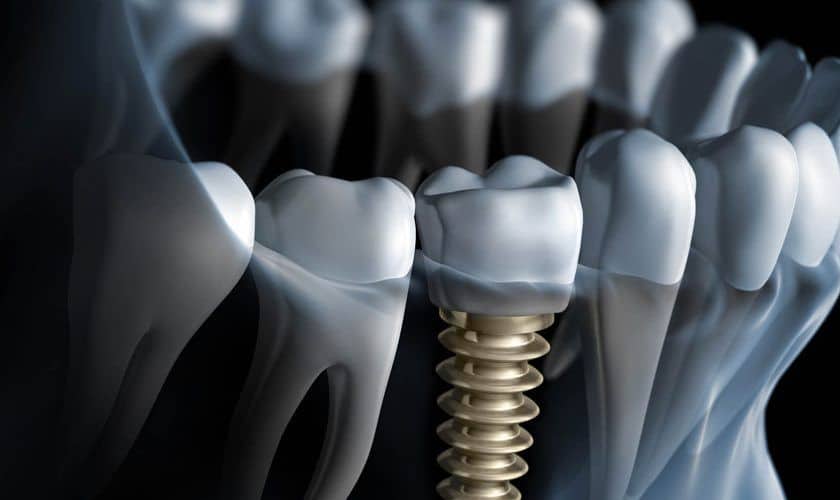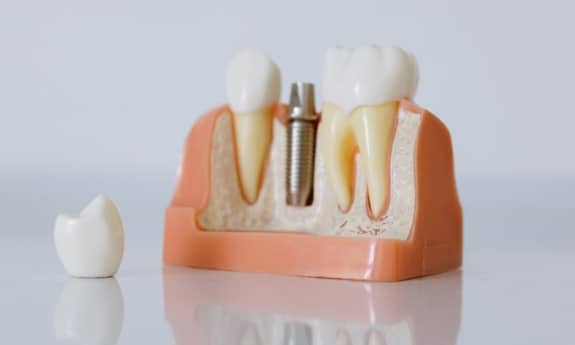Pay Online
Implant Renaissance: A New Age of Smiles with Dental Implants

Welcome to the Implant Renaissance, where dental implants are revolutionizing the world of smiles. In this new age of dentistry, dental implants have emerged as a transformative solution for replacing missing teeth and restoring the natural beauty of smiles. Unlike traditional dentures or bridges, dental implants offer a permanent and lifelike replacement that looks, feels, and functions just like natural teeth. With advancements in implant technology, materials, and techniques, patients can now experience improved comfort, stability, and longevity. The Implant Renaissance promises a new era of smiles, where individuals can regain their confidence, enjoy enhanced oral health, and embrace a beautiful, natural-looking smile that lasts a lifetime.
Understanding Dental Implants
Dental implants are innovative tooth replacement solutions that mimic the structure and function of natural teeth. They consist of three main components: the titanium implant post, an abutment, and a dental crown. The implant post is surgically placed into the jawbone, providing a stable foundation for the restoration. Over time, the implant fuses with the surrounding bone through a process called osseointegration, creating a secure and durable bond. The abutment connects the implant post to the dental crown, which is custom-made to match the shape, color, and size of the natural teeth. Dental implants offer numerous benefits, including improved aesthetics, enhanced chewing ability, preserved facial structure, and long-term durability, making them a popular and effective solution for replacing missing teeth.
Different Types Of Dental Implants
1. Endosteal Implants: Endosteal implants are the most common type of dental implants. They are placed directly into the jawbone during a surgical procedure. Once the surrounding tissues heal, a second surgery is performed to attach artificial teeth to the implants.
2. Subperiosteal Implants: Subperiosteal implants are an alternative to endosteal implants for individuals with insufficient jawbone height or density. These implants are placed on top of the jawbone, beneath the gum tissue. They consist of a metal framework that holds the artificial teeth securely in place.
3. All-on-4 Implants: All-on-4 implants are specifically designed for individuals who need to replace a full arch of missing teeth. With this technique, four strategically placed implants support a full dental bridge, providing stability and functionality. All-on-4 implants can often be completed in a shorter time frame compared to individual implants.
4. Mini Dental Implants: Mini dental implants are smaller in diameter compared to traditional implants. They are typically used for stabilizing dentures or replacing smaller teeth in areas where space is limited. Mini implants are less invasive and require less bone density, making them a suitable option for some patients.
The specific type of dental implant recommended for an individual depends on various factors, including the amount of available bone, the number of missing teeth, and the overall oral health of the patient. A consultation with a dental professional is necessary to determine the most suitable type of implant for each individual case.
Benefits of Dental Implants
1. Improved Oral Function: Dental implants function like natural teeth, allowing for comfortable chewing, biting, and speaking. They provide stability and durability, enabling individuals to enjoy a wide range of foods without restriction.
2. Enhanced Aesthetics: Dental implants closely resemble natural teeth in both appearance and feel. They are custom-designed to match the color, shape, and size of surrounding teeth, resulting in a seamless and attractive smile.
3. Preservation of Jawbone Health: When a tooth is lost, the underlying jawbone can deteriorate over time. Dental implants stimulate the jawbone through osseointegration, helping to prevent bone loss and preserving the overall bone structure and facial contours.
4. Long-Term Durability: With proper care and maintenance, dental implants can last for many years, and in some cases, a lifetime. Unlike other tooth replacement options, such as dentures or bridges, implants are a permanent solution that eliminates the need for frequent replacements.
5. Improved Self-Confidence: Dental implants restore a person’s ability to speak, eat, and smile with confidence. They eliminate the self-consciousness associated with missing teeth, improving self-esteem and overall quality of life.
Candidacy For Dental Implants
1. Sufficient Bone Density: Adequate bone density in the jaw is crucial for successful dental implant placement and osseointegration.
2. Healthy Gums: Candidates should have healthy gums free from periodontal disease or gum infections, as these conditions can affect the success of dental implants.
3. Overall Good Health: Candidates should be in good overall health to undergo the surgical procedure and heal properly after the implant placement.
4. Non-Smokers: Smoking can hinder the healing process and increase the risk of complications, so candidates are encouraged to be non-smokers or willing to quit smoking during the implant process.
5. Commitment to Oral Hygiene: Candidates must have a commitment to maintaining good oral hygiene practices, including regular brushing, flossing, and attending dental check-ups, to ensure the long-term success of dental implants.
It’s important to consult with a dental professional to assess your specific situation and determine if you are a suitable candidate for dental implants.
Some FAQs about Dental Implants
1. Are dental implants painful?
The dental implant procedure is typically performed under local anesthesia, ensuring that you won’t feel any pain during the surgery. Some discomfort and swelling may be experienced after the procedure, but it can be managed with pain medications prescribed by your dentist.
2. How long do dental implants last?
Dental implants are designed to be a long-term solution for tooth replacement. With proper care and maintenance, including good oral hygiene practices and regular dental check-ups, dental implants can last for decades, if not a lifetime.
3. Can anyone get dental implants?
While many individuals are suitable candidates for dental implants, certain factors such as overall health, bone density, and gum health are considered during the evaluation process. Your dentist will assess your specific situation to determine if dental implants are the right option for you.
4. How long does the dental implant process take?
The duration of the dental implant process can vary depending on factors such as the individual case, the need for additional procedures like bone grafting, and the healing time required. In general, the process can take several months, allowing for proper healing and integration of the implant with the jawbone.
5. Are dental implants noticeable?
Dental implants are designed to closely resemble natural teeth in terms of appearance and function. The dental crown that is placed on top of the implant is customized to match the color, shape, and size of your existing teeth, resulting in a seamless and natural-looking smile.
Remember, it’s always best to consult with your dentist or oral surgeon to address any specific concerns or questions you may have about dental implants based on your individual circumstances.
In conclusion, dental implants offer a transformative solution for replacing missing teeth and restoring smiles. With their ability to provide long-term durability, improved aesthetics, enhanced chewing ability, and preserved facial structure, dental implants have become a popular and effective option to regain confidence and enjoy a natural-looking smile that can last a lifetime.
Recent Posts

5 Signs That You Should Visit an Elgin Dentist for a Checkup

What Are The Symptoms Of A Loose Dental Implant?

Which Foods Should I Avoid With Braces?

How to Know if Your Child Needs a Tooth Extraction?


